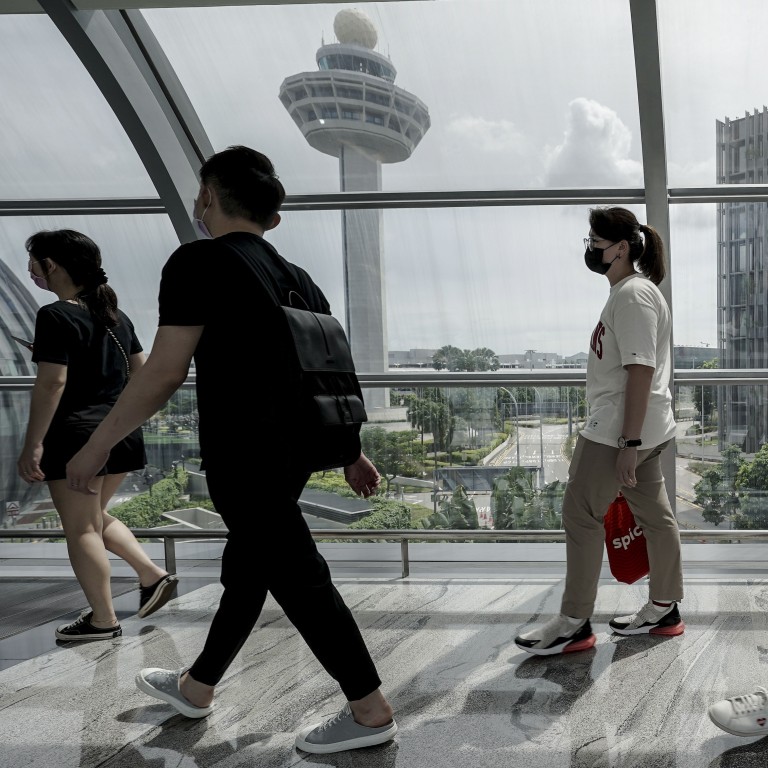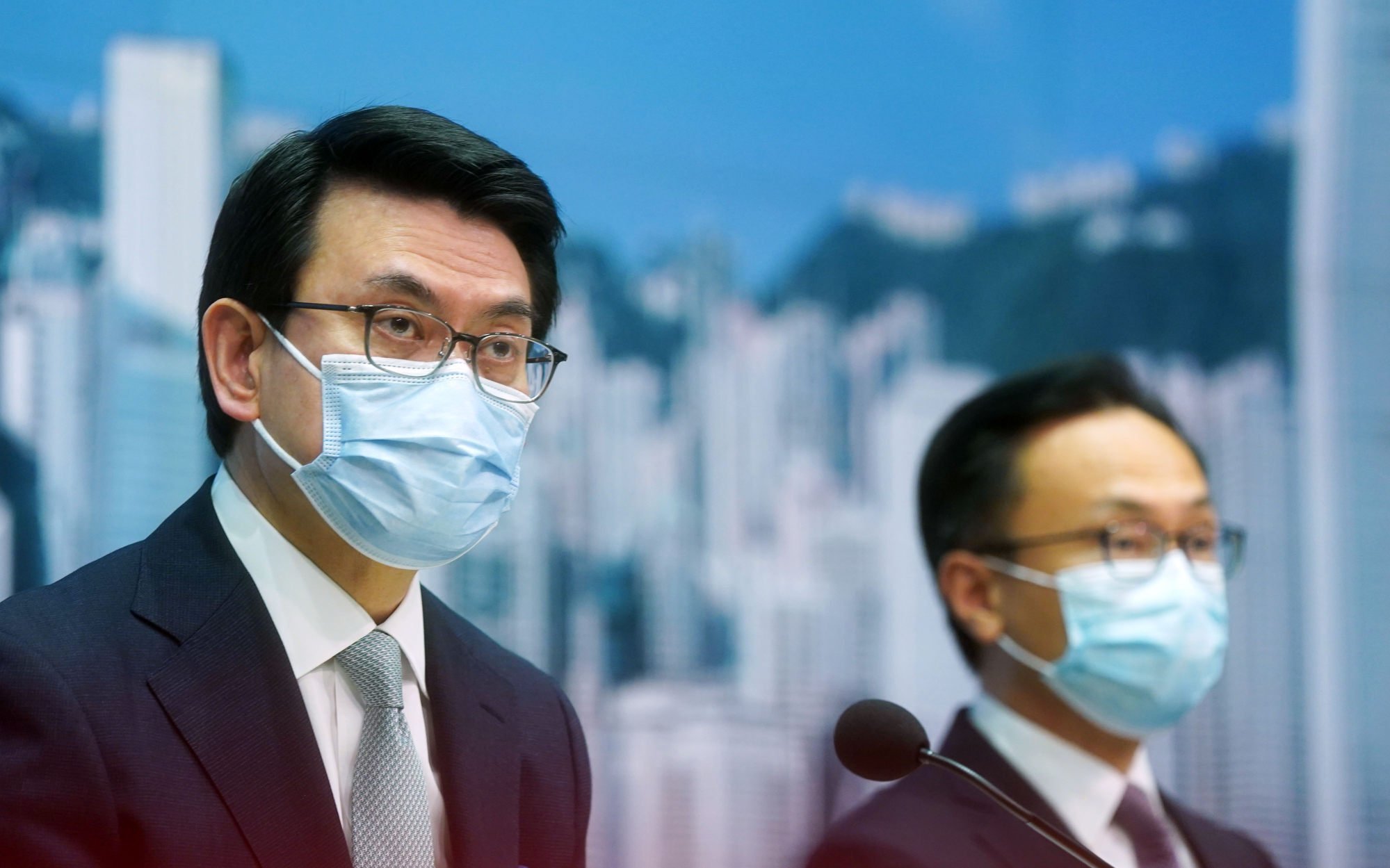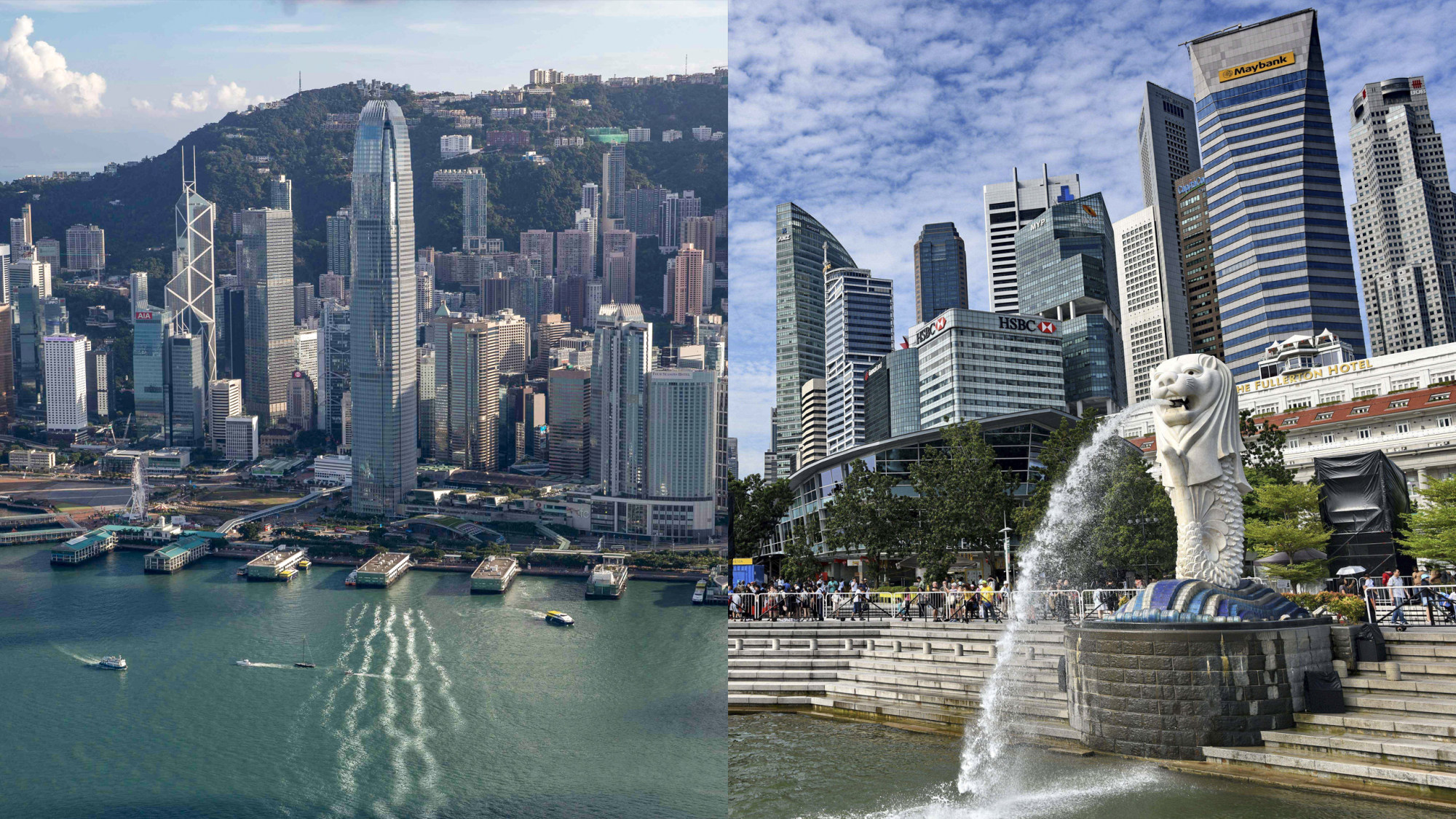
Explainer | Hong Kong-Singapore travel bubble to start May 26 – all you need to know about vaccinations, tests and contact tracing
- Quarantine-free travel between two Asian air hubs will begin before the summer school holidays in a boost for tourism
- Hong Kong says only vaccinated people can travel but the requirement won’t apply to those from Singapore. Those above the age of six will need four Covid-19 tests in total and should expect to spend HK$2,845 (S$485)
It’s finally happening. What are the details?
The number of flights will be allocated equally between Singapore Airlines and Cathay Pacific. Flight numbers for the designated travel bubble flights will be SQ882 and CX734 for the Singapore-Hong Kong route and SQ883 and CX759 for the Hong Kong-Singapore route.
Flight prices shot up after the announcement. A one-way Singapore Airlines flight to Hong Kong in early May before the bubble is priced at S$286.10 (HK$1,675), but a return ticket departing on May 26 costs upwards of S$776.10 (HK$4,544) as of 1.30pm on Monday. Meanwhile a one-way bubble flight on Cathay Pacific costs HK$4,133 (S$705).
Hong Kong-Singapore travel bubble to begin May 26
Do only vaccinated people qualify?
Hong Kong residents would need to be fully vaccinated – receiving two doses of either the Sinovac or BioNTech vaccines on offer – 14 days before their date of departure to Singapore. The vaccine requirement does not apply to Singapore travellers heading to Hong Kong.
Singapore’s Transport Minister Ong Ye Kung said this was because the original plan last year was for people to be eligible for quarantine-free travel with a partner city or region that was “safe, where the control measures are good, and then you can travel … with tests but no need for vaccination”.
Hong Kong met this criteria, Ong said, adding that the city’s requirement for all departing residents to be fully vaccinated was probably because “they wanted an extra incentive for people to get vaccinated”.
Hong Kong’s commerce minister Edward Yau Tang-wah explained that the travel bubble plan rested on keeping coronavirus infections under control and on the testing capabilities of both sides. The requirement that those travelling from Hong Kong be vaccinated was an added enticement to boost the city’s inoculation drive, he said.

However, the Hong Kong government will allow exceptions to this rule, with no proof of vaccination required for Hong Kong residents who:
1. Are aged below 16
2. Are not able to be vaccinated on medical grounds
3. Have been in Hong Kong for less than 90 days before departure
4. Are using a non-Hong Kong travel document for departure
To date, about 11 per cent of Hong Kong’s population of about 7.5 million has received at least a first vaccine dose. Roughly 432,000 people, or 5.7 per cent of the population, are fully vaccinated. The city currently allows anyone above 16 to get vaccinated.
Singapore is using the Pfizer-BioNTech and Moderna vaccines. So far, it has given 2.2 million shots and 849,764 people, or 14.9 per cent of the population, have been vaccinated. In Singapore, vaccinations are open to those aged 45 and over.
So what are the rules?
Travellers will need to test negative for Covid-19 four times – two tests should be taken within 72 hours before their scheduled departure time and two tests will be taken upon arrival in their destination and home city.
This means travellers can expect to spend up to HK$2,845 (S$485) on tests. Experts previously attributed the higher cost of testing in Singapore than in Hong Kong to where the test kits were sourced and the type of swabs used. Singapore gets its kits from Roche in Germany and Hologic and Thermo Fisher Scientific in the US, while some of Hong Kong’s test kits are thought to come from mainland China. Lab processes such as extracting the sample are also an expensive component that Singapore-based infectious diseases expert Leong Hoe Nam said could easily cost S$150 (HK$866).
Singapore will not require those under the age of six to be tested for Covid-19 before their departure for Hong Kong and upon arrival at Singapore’s Changi Airport. This means that those below the age of six only need to take two tests – before departing Singapore for Hong Kong and upon arrival at Hong Kong International Airport.
Travellers must comply with existing public health and safe distancing measures in either city, such as mask wearing and restrictions on group gatherings.
Hong Kong-Singapore travel bubble ‘won’t burst’ despite mutated strain
Singapore residents:
Those who are work permit or S-pass holders in Singapore and are employed in the construction, marine shipyard or process sectors are not eligible for the travel bubble. Ong said last year that Hong Kong authorities were particularly concerned about this group of workers. Many live in dormitories and have made up about 94 per cent of Singapore’s total Covid-19 infections.
Singapore to ban non-resident visitors from India starting Friday
Hong Kong residents:
After taking their test, they should take private transport or a taxi to their declared accommodation and remain isolated there until their test results are confirmed to be negative. Singapore citizens, permanent residents and long-term pass holders can self-isolate at their place of residence but all others must book non-residential hotel accommodation for one to two days while waiting for their test result.

The quarantine-free plan was canned at the eleventh hour previously. Will the same thing happen again?
This time around, the mechanisms for continuation of the bubble have been tightened. As per last year, the bubble will be suspended for two weeks if the seven-day moving average of unlinked cases in either city is more than five. However, the bubble only resumes if three criteria are met: the moving average on the last day of suspension is under five, both cities clock three consecutive days of not more than three unlinked cases, and the moving average on the third day is not more than five.
The current figure for Hong Kong is 1.29 and it is 0.43 for Singapore.
Which other countries have travel bubbles and how are they doing?
An air travel bubble between Australia and New Zealand kicked off last Monday (April 19), after months of talks and setbacks over several small virus outbreaks in both countries. Media reports pointed to a lopsided demand, with a disproportionate number of travellers departing from Australia.
Wellington Airport painted an enormous welcome sign near its main runway to mark the occasion, while Air New Zealand ordered some 24,000 bottles of sparkling wine for its passengers. But on Friday, New Zealand said it would pause the travel bubble with Western Australia, after regions of Perth and Peel re-entered lockdown due to a traveller testing positive for Covid-19.
New Zealand pauses travel bubble with Western Australia
Ong, the Singapore transport minister, said this sort of “stop-start situation” was going to be the “norm” for travel bubbles. “Likewise, we have gone through the same with the Hong Kong-Singapore travel bubble and right now I think for us the conditions are right, because our risk profiles are similar,” he said on Monday.
Elsewhere, Taiwan’s quarantine-free travel arrangement with Palau kicked off earlier this month (April 1), with about 100 Taiwanese tourists on the first flight to the Pacific island nation.


